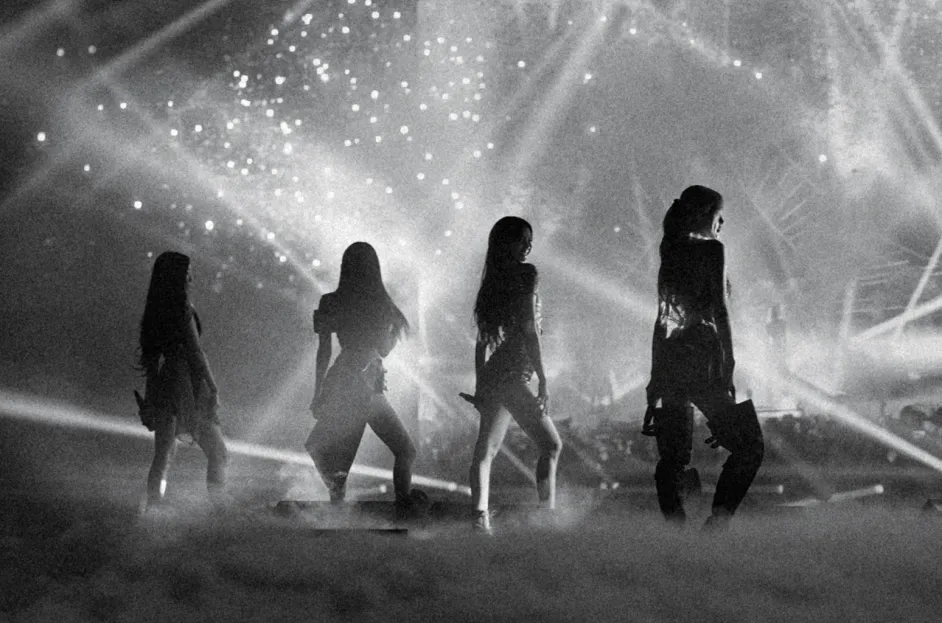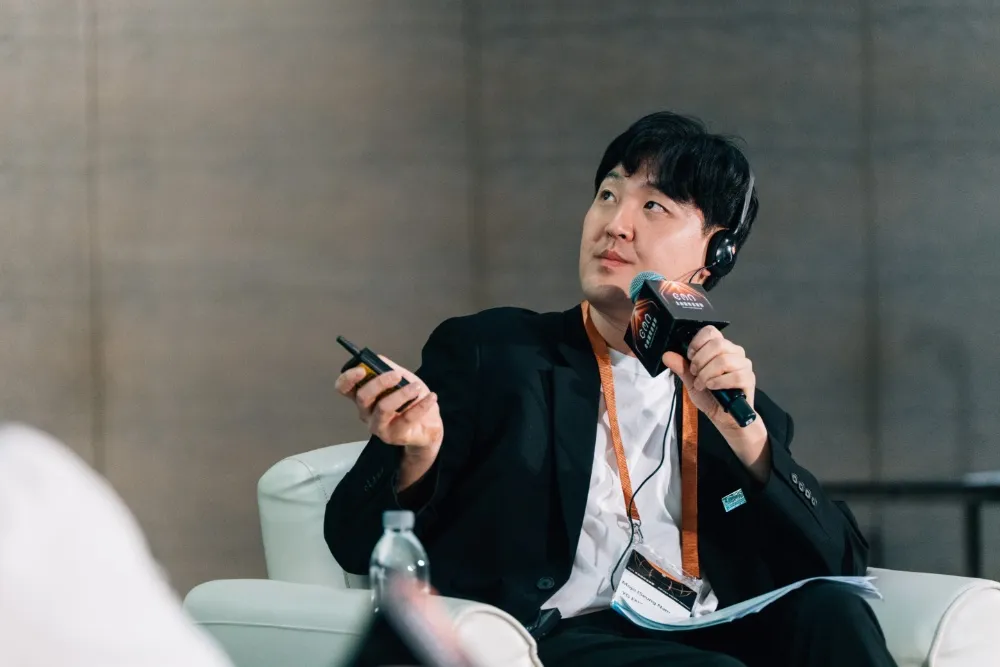YG Entertainment's Global K-Pop Vision Collides with Fan Realities
The global ascendance of K-pop isn't just a phenomenon; it's a meticulously engineered cultural export, a point underscored at the recent Golden Melody Festival in Taipei. There, Mojo Kim (Seung Nam Kim), a producer from YG Entertainment – the powerhouse behind acts like Blackpink – offered a rare glimpse into the strategic machinations driving K-pop's ever-expanding reach. In a panel aptly titled “K-pop Music Production Strategies for the Global Market,” Kim, alongside Ryan Farley of U.K. indie label Cooking Vinyl, dissected the delicate balance required to resonate with both domestic and international ears.
Mojo Kim at Golden Music Festival Summer 2025
Kim's insights centered on a philosophy that transcends mere stylistic mimicry. He noted that "A&R matchmaking isn’t just about style – it’s about emotional language." The process, as he described it, begins with identifying the precise "sound the team needs right now," followed by a rigorous refinement through references and a global search for creators capable of translating that elusive emotion into sonic form. He pointed to the increasingly common practice of global songwriting camps, where writers from diverse backgrounds converge to craft demos. These are then meticulously curated by the A&R team to align with an artist's identity, with Korean lyricists and producers providing the final, crucial touches.
A key distinction, Kim explained, lies in regional consumption patterns. For Western markets, he observed, "immediacy is key – catchy melodies, rhythmic clarity, and intuitive structure tend to resonate first." International listeners, he suggested,often connect with tone and groove before lyrics. Conversely, Korean audiences, according to Kim, "crave lyrical storytelling, emotional nuance, and even silence – those ‘empty moments’ that carry weight.” Yet, regardless of the regional nuances, the "memorable melody" remains the holy grail, a universal connector. He highlighted groups like NewJeans and (G)I-DLE as prime examples of artists who have mastered this delicate fusion of Korean detail with global polish. The sheer scale of cross-cultural collaboration is evident in the numbers: in 2024, a staggering 75% of K-pop tracks involved international creators, a testament to the industry's borderless approach.
For Kim, the secret to working with this international tapestry of talent lies in embracing friction. He noted that "Collaborating with global songwriters can sometimes involve language barriers, different workflows, and cultural misinterpretations, but it’s precisely through these moments of friction that non-formulaic, genre-bending sounds are born.” It’s a compelling argument for creative synergy born from challenging established norms. Looking ahead, Kim expressed his belief that K-pop's future hinges on its capacity to remain emotionally grounded while embracing an even broader palette of co-creators from diverse countries and cultures. The genre's power to "create emotional resonance and human connection across languages and backgrounds," he concluded, is what will ensure its continued relevance and thriving presence in the global mainstream.
However, the glossy facade of K-pop's global dominance, particularly for a titan like YG Entertainment, isn't without its complexities and indeed, its shadows. For a significant segment of the fervent fanbase, the meticulous production strategies and global outreach efforts are often viewed through a prism of alleged mistreatment of their artists. Groups, including Blackpink, have been at the center of fan concerns regarding what is perceived as infrequent musical releases, prolonged hiatuses, and a perceived lack of creative autonomy. There have been allegations, circulating among various fan communities and online forums, of YG Entertainment prioritizing modeling and endorsement deals over consistent musical output, leading to frustration among fans who crave more original music. Whispers of artists not receiving fair compensation or being subjected to overly strict contractual terms have also periodically surfaced, leading some fans to question the ethical underpinnings of the very system that produces the music they adore. This undercurrent of dissatisfaction often manifests in fan-led campaigns and boycotts, demonstrating a powerful, collective voice challenging the established power dynamics of the industry.
Despite these persistent critiques, the machinery of K-pop continues its relentless march, propelled by the sheer force of its global appeal. And for fans in the Midwest, the opportunity to witness the polished spectacle of one of K-pop's biggest acts is fast approaching. Blackpink, YG Entertainment's marquee girl group, is slated to perform in Chicago on July 18th at Soldier Field, a testament to their unwavering popularity and the continued expansion of K-pop's live footprint across North America. It’s a curious paradox: the very fans who voice concerns over their idols' treatment will undoubtedly fill stadiums, their adoration a crucial, perhaps even contradictory, pillar of the industry's sustained success.


